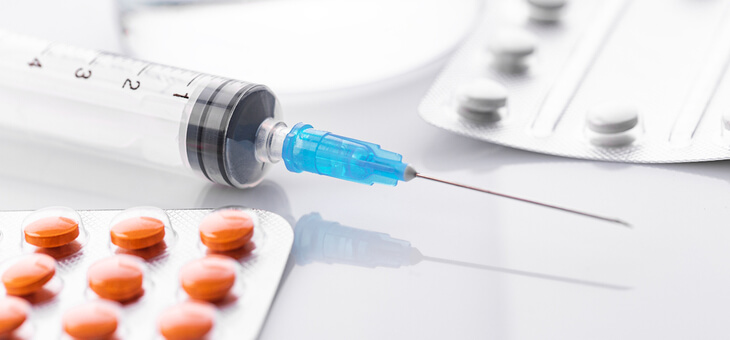Common supermarket painkillers can reduce the effectiveness of COVID vaccines, new research shows.
Taking an over-the-counter drug such as paracetamol or ibuprofen immediately before or after receiving a COVID jab can reduce its effectiveness by as much as 30 per cent, research from the University of Sydney has found.
Dr Christina Abdel-Shaheed, lead author of the study, told the Herald Sun that anyone experiencing headaches or fever after a COVID jab should try to ride out the negative side-effects, rather than take pain medication.
She recommends waiting at least six to eight hours after receiving a dose before taking paracetamol or ibuprofen. The advice applies to other types of vaccines as well and not just to COVID jabs.
Read: Older Australians fears about COVID ‘perfectly reasonable’
“We decided to study painkillers and fever medications generally and were amazed by what we found,” Dr Abdel-Shaheed says.
“There is some sort of blunting to the immune response and individual studies have put an estimate of around, in some cases, over 30 per cent reduction in levels of antibodies.
“Our review shows some of the common pain and fever medications may work with the immune system to fight infection, whereas others work against it and increase the risk of contracting or responding badly to infectious diseases.”
The study, published in the British Journal of Clinical Pharmacology, was a meta-analysis of more than 170 previous studies. It also found stronger painkillers such as morphine and other opioids can suppress key cells in your immune system, making vaccines less effective.
Read: Studies shed light on need for fourth COVID shot
“Morphine – one of the most commonly used opioid analgesics in post-surgical and critical care – suppresses key innate immunity cells, thereby increasing the risk of infection,” says Dr Justin Beardsley, infectious disease specialist at Sydney’s Westmead Hospital.
“This is particularly the case with cancer patients, who are already vulnerable to COVID-19.”
The research team says that although further study is needed to determine the exact interactions that cause the vaccine’s effectiveness to wane, the results are still important due to how ubiquitous paracetamol and ibuprofen are.
Read: Omicron survives longer on plastic and skin
“One of the problems is that widely used medicines – such as paracetamol, nonsteroidal anti-inflammatory drugs like ibuprofen, and corticosteroids such as prednisone – have been around for decades and in the past we didn’t tend to consider their impacts on the immune system because it has been an under-recognised area,” says University of Sydney dean of pharmacy Professor Andrew McLachlan.
“From community use to hospital and acute care, these classes of pain and fever medications are among the most popular drugs worldwide, but we need to consider the significant impact these can have on our immune system and our response to infectious diseases, including COVID-19.”
If you enjoy our content, don’t keep it to yourself. Share our free eNews with your friends and encourage them to sign up.

